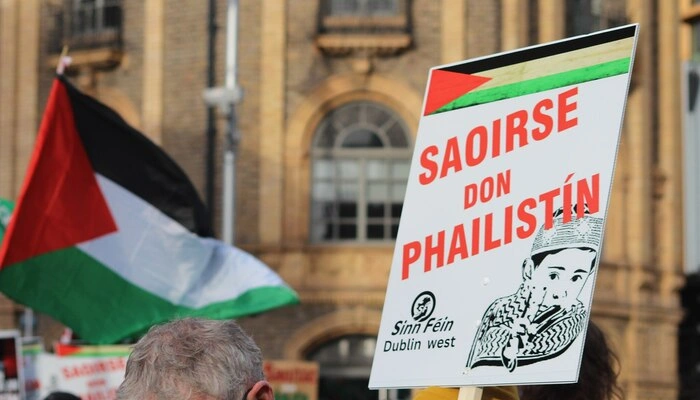Ireland’s steadfast support for Palestine has intensified tensions with Israel, following Dublin’s decision to back South Africa’s genocide case against Israel at the International Court of Justice (ICJ). Israel’s withdrawal of its ambassador and harsh criticisms of Irish leadership have only fueled the diplomatic storm.
Israel’s Backlash and Ireland’s Response
Newly appointed Israeli Foreign Minister Gideon Saar accused Irish Prime Minister Simon Harris of anti-Semitism. Saar claimed Ireland was applying double standards against Israel. In response, Harris remained resolute, stating that Ireland would not be silenced. “Killing children and starving civilians are reprehensible,” Harris said, stressing the need to respect international law during conflicts.
Israel’s decision to close its embassy in Ireland underscores its anger over Dublin’s stance. However, Ireland’s vocal position reflects both its political leadership and the sentiments of its people.
Historical Parallels: Ireland and Palestine
For many Irish citizens, Palestine’s struggles mirror Ireland’s own history of colonization and oppression. This shared understanding has fueled strong public support for Palestine. Fatin Al Tamimi, Vice Chair of the Ireland Palestine Solidarity Campaign (IPSC), highlighted this connection. “As soon as people learn I’m Palestinian, they say they understand,” she explained. Yet, she continues to raise awareness about the scale of Gaza’s suffering.
This sentiment was evident even in Ireland’s political discourse. In late 2023, former Irish leader Leo Varadkar described Israel’s actions in Gaza as “approaching revenge.” By December, Ireland, along with Spain, Belgium, and Malta, urged the European Union to call for a ceasefire.
Read: Israel Closes Embassy in Ireland Amid Rising Diplomatic Tensions
Recognizing Palestinian Statehood
Ireland, Spain, and Norway officially recognized Palestinian statehood in May 2024. The move enraged Israel, prompting the temporary recall of its ambassador. Ray Murphy, professor at the Irish Centre for Human Rights, emphasized that Irish support for Palestine is deeply rooted. “It cuts across all social classes, ages, and political allegiances,” Murphy said.
Public opinion also influenced Ireland’s leaders. Murphy noted how politicians were surprised by the “strength of feeling” expressed during the country’s general election campaigns. “Palestine is an issue people care deeply about. For many, it’s black and white—Palestine’s struggle is simply just.”
The EU and International Politics
Ireland’s position on Palestine sets it apart within the European Union, which largely supports Israel. Countries like Germany strongly back Israel, often restricting pro-Palestinian activism. Additionally, European Commission President Ursula von der Leyen’s vocal support for Israel has drawn criticism from some EU officials.
However, Ireland’s actions raise concerns about its relationship with the United States. The U.S. is Ireland’s largest foreign investor. Analysts worry that a future Trump administration might use economic pressure to influence Dublin’s stance.
A Personal Connection
For Al Tamimi, Ireland’s support is personal. Her sister remains trapped in Gaza, while her Irish-born children identify as both Palestinian and Irish. “They want to see Palestine. Not just visit, but live there,” she said, reflecting the deep ties between Ireland’s people and the Palestinian cause.
Ireland Stands Firm
Despite diplomatic tensions and Israeli anger, Ireland’s support for Palestine remains unwavering. It reflects both historical empathy and a national commitment to justice. As global politics evolve, Ireland’s leadership faces the challenge of balancing international relations with deeply held national values.
Follow Day News on Google News, Instagram, YouTube, Facebook, Whats App, and TikTok for latest updates
